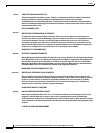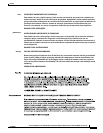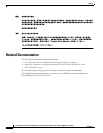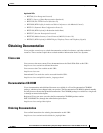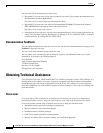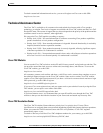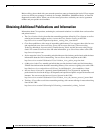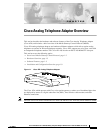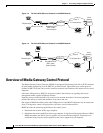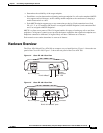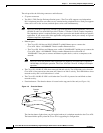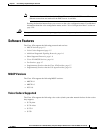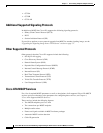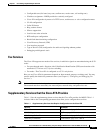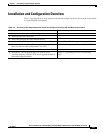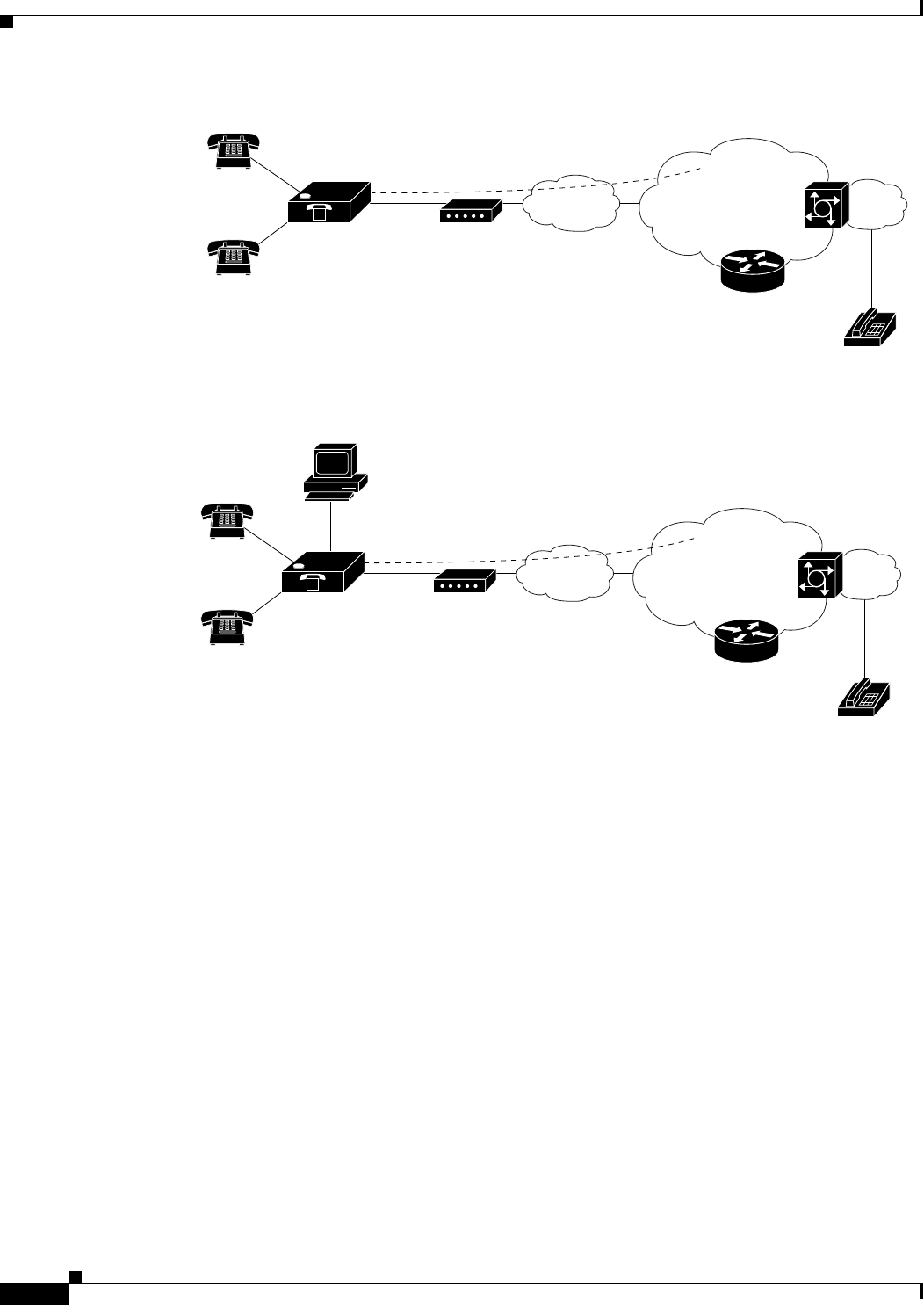
1-2
Cisco ATA 186 and Cisco ATA 188 Analog Telephone Adaptor Administrator’s Guide for MGCP (version 3.0)
OL-4803-01
Chapter 1 Cisco Analog Telephone Adaptor Overview
Overview of Media Gateway Control Protocol
Figure 1-2 The Cisco ATA 186 as an Endpoint in an MGCP Network
Figure 1-3 The Cisco ATA 188 as an Endpoint in an MGCP Network
Overview of Media Gateway Control Protocol
The Media Gateway Control Protocol (MGCP) is the Internet Engineering Task Force (IETF) standard
for multimedia conferencing over IP. MGCP is an ASCII-based, application-layer control protocol
(defined in RFC2705) that can be used to establish, maintain, and terminate calls between two or more
endpoints.
Like other VoIP protocols, MGCP is designed to address the functions of signaling and session
management within a packet telephony network.
Signaling allows call information to be carried across network boundaries. Session management
provides the ability to control the attributes of an end-to-end call.
One aspect of MGCP that differs from other VoIP protocols is that MGCP endpoints rely on instructions
from a Call Agent to control call progression, call tones, and call characteristics.
MGCP provides the following capabilities to the control server:
• Determines the location of the target endpoint.
• Determines the media capabilities of the target endpoint. Using Session Description Protocol (SDP),
MGCP determines the lowest level of common service between the endpoints. Conferences are
established using only the media capabilities that can be supported by all endpoints.
V
Cisco ATA 186
Telephone/fax
Ethernet
Broadband CPE
(DSL, cable,
fixed wireless)
Broadband
Call Agent
Layer 3
IP infrastructure
PSTN
Voice
gateway
82127
V
V
Cisco ATA 188
Telephone/fax
Ethernet
Broadband CPE
(DSL, cable,
fixed wireless)
Broadband
Call Agent
Layer 3
IP infrastructure
PSTN
Voice
gateway
82128
V



